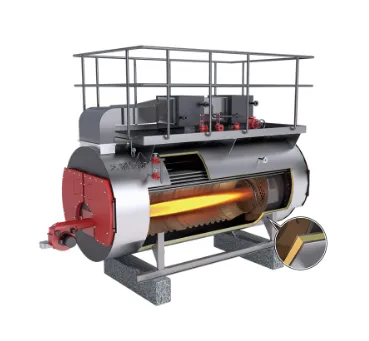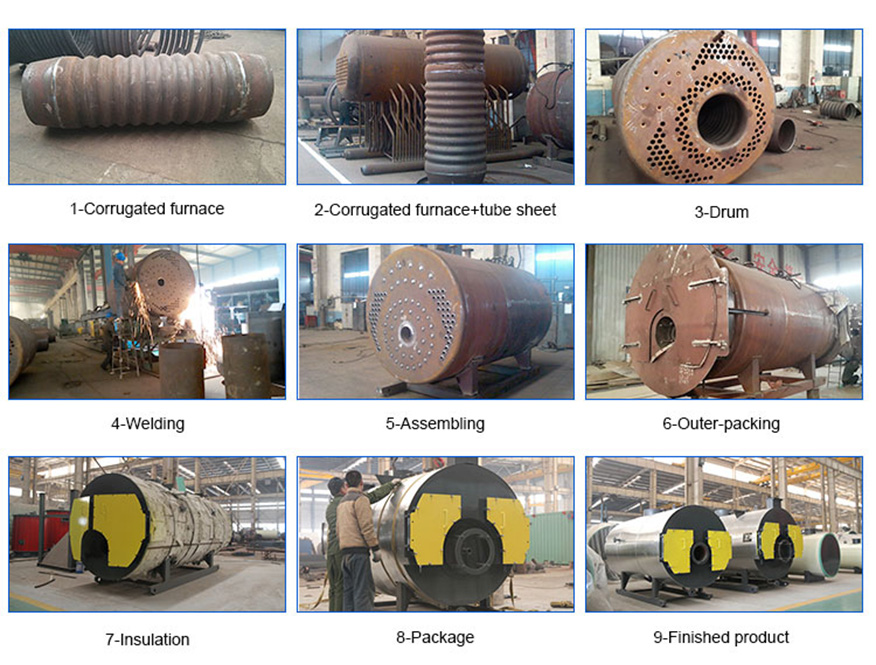waste heat boiler
Waste heat boilers are an innovative solution in the realm of energy conservation, offering a sustainable way to harness energy that would otherwise be lost in various industrial processes. These remarkable devices are specifically designed to recover heat from the exhaust gases of diverse sources such as turbines, engines, incinerators, and other industrial processes, converting what is typically regarded as waste into beneficial energy. Industries ranging from petrochemical to cement, and steel production have all realized substantial benefits from integrating waste heat boilers into their energy systems.

The design and operational efficiency of waste heat boilers are key factors that appeal to industry experts. They are engineered to withstand extreme temperature fluctuations and have modular and adaptable configurations, making them suitable for a wide array of applications. This adaptability is paramount in ensuring they meet specific industrial needs, providing optimal performance and significant energy savings. Industry professionals consistently emphasize the importance of selecting the correct configuration, whether water-tube, fire-tube, or a combination, to align with the energy source and output requirements.
One of the primary advantages cited by users is their contribution to reducing carbon footprints and enhancing overall plant efficiency. By capturing and utilizing waste heat, these boilers not only lower consumption of primary fuels such as natural gas and coal but also minimize greenhouse gas emissions. This eco-friendly approach not only supports global sustainability efforts but also aligns with stricter environmental regulations impacting industries worldwide. Consequently, investments in waste heat recovery systems exemplify a commitment to environmental stewardship, which is increasingly valued by stakeholders and customers alike.

From a technical standpoint, the maintenance of waste heat boilers plays a crucial role in their longevity and continual efficiency. Regular inspections and adherence to maintenance protocols can thwart common issues such as soot buildup and scaling, which can impair heat transfer and reduce performance. Partnering with experienced maintenance providers ensures systems operate at peak efficiency, thus safeguarding the return on investment.
waste heat boiler
Furthermore, the ongoing advancements in technology have bolstered the effectiveness and appeal of waste heat boilers. Innovations in materials science, coupled with enhanced heat exchange mechanisms, have led to the development of more robust and efficient units. These advancements not only increase the appeal of waste heat boilers as a viable solution for modern industries but affirm their role as pivotal tools in the transition towards more sustainable industrial practices.
Trust and expertise in waste heat boiler systems are critical in decision-making processes for industrial stakeholders. Engaging with reputable manufacturers plays a significant role in ensuring that the systems deployed are of high quality and reliability. Experienced manufacturers provide valuable insights and comprehensive support services, from design and implementation to maintenance strategies, helping businesses leverage this technology's full potential.
In summary, waste heat boilers stand out as a smart choice for industries aiming to enhance energy efficiency, reduce emissions, and ensure compliance with environmental standards. Their ability to convert waste into a valuable resource not only contributes to operational excellence but also aligns with broader environmental goals. As more industries recognize the value of this technology, the expertise and trustworthiness of the solutions will remain vital in achieving long-term sustainability and economic benefits.
-
Industrial Steam Boiler Corporation - Reliable Industrial Boiler Manufacturer & SupplierNewsJul.08,2025
-
High-Efficiency Steam Boiler Heat Exchanger Supplier & Factory Durable Products for IndustryNewsJul.08,2025
-
Premium Electric Steam Boiler Manufacturer Reliable Company & Factory SolutionsNewsJul.08,2025
-
Commercial Hot Water Boiler - Reliable Supplier & Factory Direct Price for Efficient Heating SolutionsNewsJul.07,2025
-
Top Hot Oil Boiler Manufacturer - Reliable Thermal Oil & Coal Fired Boiler Manufacturer ManufacturerNewsJul.07,2025
-
High-Efficiency Hotel Hot Water Boiler – Leading Exporters & Quotes for HotelsNewsJul.07,2025

